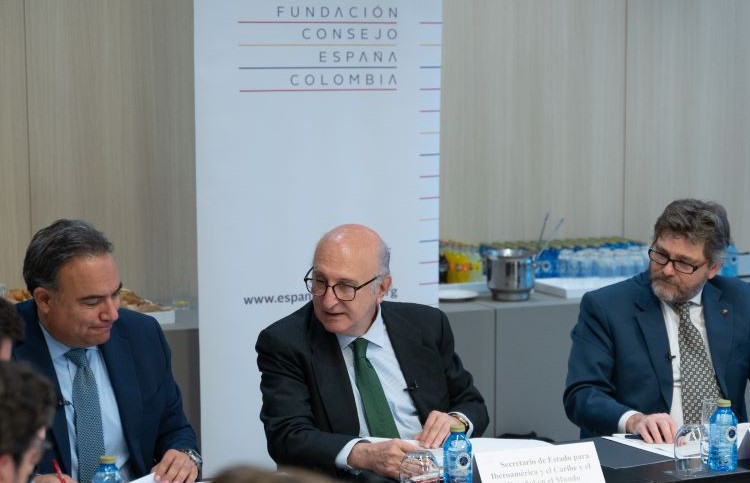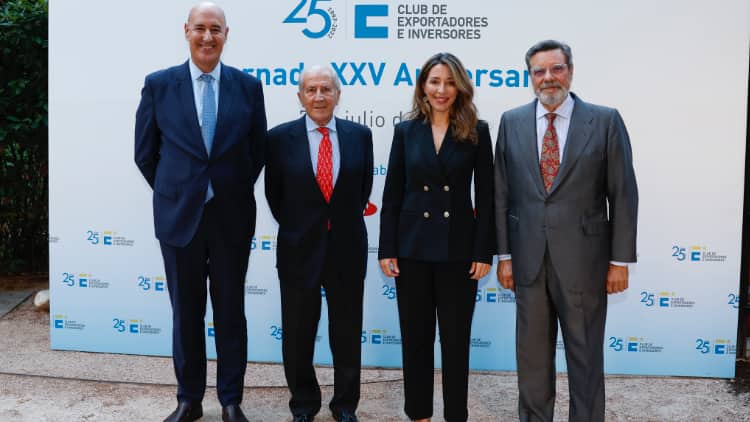The Diplomat
The State Secretary for Ibero-America, the Caribbean and Spanish in the World, Juan Fernández Trigo, chaired the meeting of the Board of Trustees of the Spain-Colombia Council Foundation at the end of June, at which he took stock of the political situation in the Ibero-American country after the “historic” presidential elections.
The meeting of the Board of Trustees took place on June 28 and its agenda included an item dedicated to the analysis of the recent Colombian electoral process, in which the State Secretary made a presentation on the situation in the country and on the general lines of action of the Ministry of Foreign Affairs in Colombia.
Fernández Trigo described as “historic” the presidential elections held on June 19 (in which the leftist candidate Gustavo Petro won and the Democratic Center, of the still President Iván Duque, was heavily defeated) due to “the civic spirit and the high degree of democratic participation” shown by the Colombian people and its institutions, as highlighted by the European Union’s Electoral Observation Mission. According to the State Secretary, Spain participated in this mission as well as in the one led by the Organization of American States (OAS).
In the opinion of Fernández Trigo, Petro’s victory is part of a political alternation that shows “the maturity of Colombian democracy”. The Ministry, he assured, is fully prepared to work with the new Colombian government to continue strengthening the ties that unite both countries, which have affinities in matters such as equality, social policy, peace or environmental protection. Likewise, the State Secretary highlighted Spain’s relations with the government of Iván Duque, a “friendly government with which there has been a great willingness to collaborate”.
Fernández Trigo also explained that, despite these months of electoral campaign, Colombia has continued along the path of reforms and modernization, as shown by the decarbonization goals set or the change in the energy matrix in favor of renewable energies. He also assured that the country is leading the post-pandemic recovery in Latin America. Specifically, Colombia grew by more than 10% in 2021 and the OECD forecasts that in 2022 it will be the Latin American country with the highest growth, around 6.1%. More than 650 Spanish companies currently operate in Colombia (up from 160 in 2011) and Spain is the leading European investor in the country. In September 2021, the new generation Reciprocal Investment Promotion and Protection Agreement was signed.
Luis Guillermo Plata
The State Secretary had a word of thanks to the Ambassador of Colombia, Luis Guillermo Plata, who, he assured, during his mission in Madrid has invigorated bilateral relations, especially in the business and economic fields. The ambassador resigned immediately after Gustavo Petro’s electoral victory and 16 months after relieving Carolina Barco at the head of the Embassy. The resignation will be effective next August 6, one day before the inauguration of the new president.
The Colombian ambassador himself, in his last speech to the Board of Trustees of the Council Foundation, thanked the Secretary of State for all the expressions of affection and recognition and stressed that in the year and a half in which he has held the post, a great closeness and synergy has been achieved between the Council Foundation and the Colombian Embassy, which has resulted in a “successful joint collaboration that will benefit both countries”. Among those attending the ceremony was the Spanish Ambassador to Colombia, Carlos Abella y de Arístegui.







